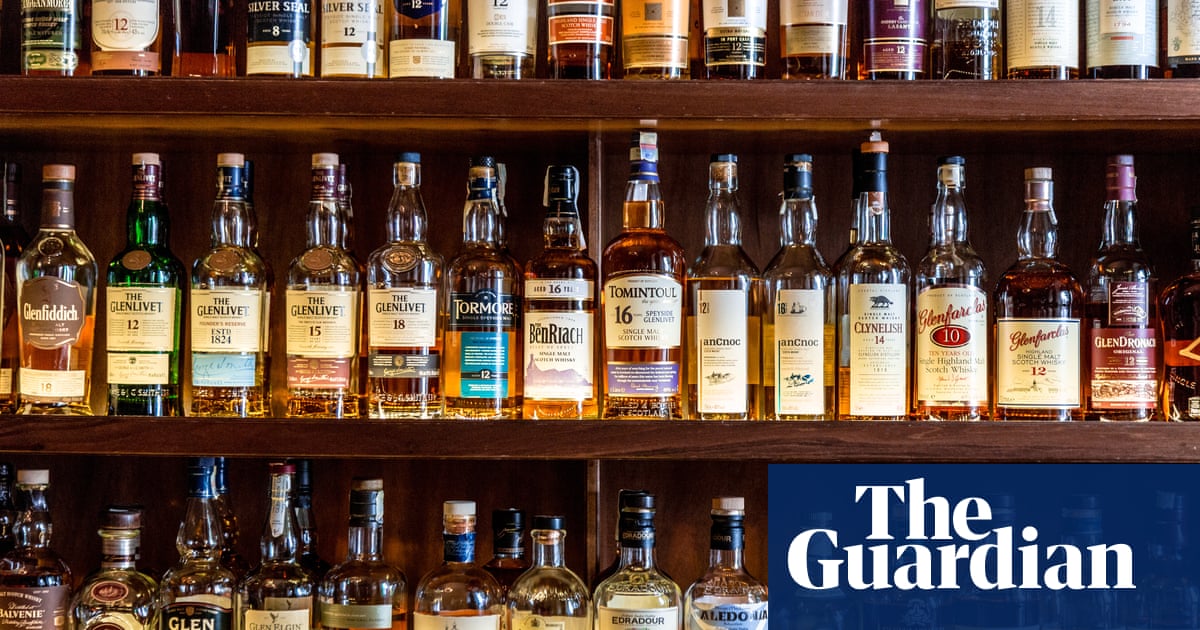Scotland’s first minister is leading efforts to persuade President-elect Donald Trump to exclude Scottish whisky from his plans to ratchet up tariffs on imports to the US.
John Swinney, who leads Scotland’s devolved government, lobbied Trump about whisky’s significant economic and cultural status during a “warm and friendly” 20-minute long telephone call the pair had on Monday.
The incoming president repeatedly cited his close family and business ties to Scotland: Trump owns two heavily indebted Scottish golf courses, and his mother was born on the Hebridean island of Lewis, a connection the president-elect repeatedly references.
The Scottish whisky industry fears that its lucrative trade with the US, worth over $1bn a year, will again be hit heavily by his proposed new tariffs on all imports or by a resumption of trade wars once Trump takes office.
Swinney, who had backed Kamala Harris for the presidency, to the irritation of Trump’s Scottish allies, said immediately after Trump’s election he was “very concerned” about the threat of fresh tariffs on Scottish whisky.
He did not mention tariffs in his call with Trump, but did stress the mutually beneficial role of cultural and trading links between the two countries. Swinney mentioned whisky twice; Trump agreed Scottish whisky was a fine thing.
“They discussed the social, cultural, and economic ties between Scotland and the United States, including the importance of the US market for Scottish exports,” a Scottish government spokesperson said.
“The first minister said he looked forward to the two nations continuing to work together.”
Producers have urged Trump not to reintroduce the 25% duty imposed on Scotch during the long-running trade dispute with the EU over state subsidies for the aircraft builders Airbus and Boeing between October 2019 and March 2021.
The Scotch Whisky Association estimates that dispute, which saw the EU impose retaliatory tariffs on US products such as Harley-Davidson motorbikes, cost it at least £600m ($765m) in lost sales. The tariffs were suspended for five years but are due to resume in 2026, unless Trump intervenes.
Trump has also proposed across-board tariffs on nearly all foreign imports, citing figures of 10 or 20%. Scotch producers worry the US market is fragile: its exports to the US have fallen by 8.5% since 2019, due to rising living costs and intense competition in the spirits market.
The US imported $1.2bn worth of Scottish whisky last year, mainly in higher value single malts. The US is historically the biggest market by value for Scotch, but it also has close, mutually beneficial ties with the bourbon industry.
Scottish distillers buy about $300m worth of bourbon casks each year, giving bourbon producers an extra source of income, while some famous distillers are US-owned.
The US-headquartered drinks giant Suntory owns Laphroaig, Bowmore and Ardmore single malts, and Teachers blended whisky, while Kentucky’s Brown Forman Corporation owns Benriach distillery among others.
The SWA has been lobbying US legislators repeatedly this year, working jointly with the Distilled Spirits Council, the Kentucky Distillers Association and whisky distributors, stepping up its campaign after Trump’s election victory by meeting members of Congress in late November.
“President Trump has not yet taken office, and the industry looks forward to working in partnership to build trade links which create jobs and investment in the US,” an SWA spokesperson said.
“We fully support the early engagement by the UK government with the incoming US administration, highlighting the investment the Scotch whisky industry already brings to the US economy and the value it adds to the US hospitality sector.”

